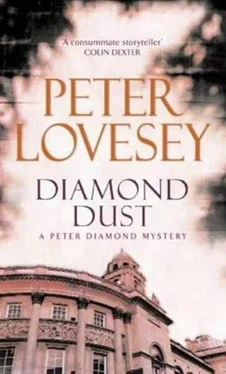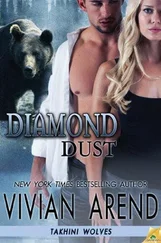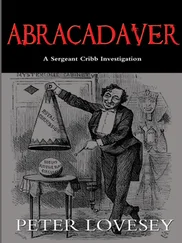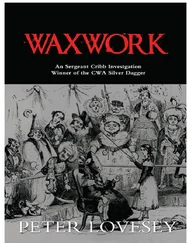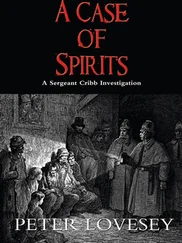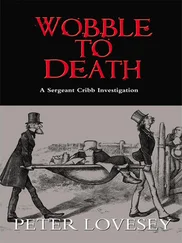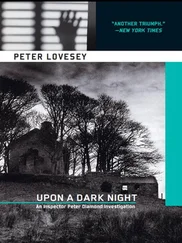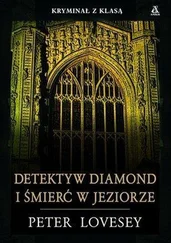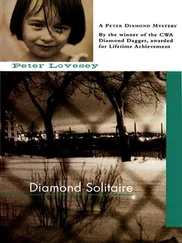Then it all went quiet again. He swanned around London enjoying the good weather, the parks and the pubs. Two days before the heist was due, he went into Boots in Oxford Street and picked some hair colouring to go nicely with the moustache he'd already bought. He spent a long time choosing. Sir John Mason, he decided finally, would favour Rich Chestnut. Personally he favoured rich anything.
McGarvie was suspicious when Diamond asked for the return of Steph's letters and papers. 'Why do you need them?'
'They were my wife's property and they belong to me. You've had them nearly two months.'
'You won't let go, will you? You won't leave this to us?'
'It's a simple request'
'You can have them at the end of the week.' From McGarvie's tone it was clear he'd be going through every scrap of paper again in case there was something incriminating he had missed.
Diamond asked, 'What's the latest on the gun?'
'Still with forensics.'
'They're taking their time.'
'Does that bother you?' McGarvie said, his eyebrows arching. 'If you know you're in the clear, why do you keep asking?'
'Because all this concentration on me is bogging down the whole inquiry. You have a budget for overtime now, and it's being wasted. They'll scale you down soon.'
'You're not the only line of enquiry, Peter. The hitman theory is still a strong runner.'
'Well, obviously.'
'I'm glad we agree on something. The shooting looked professional. Two shots to the head.'
The image darted into Diamond's brain once more -and it hurt. He was getting better at hiding his grief. 'Who would have put out a contract?'
'Someone you sent down for a long stretch. It's not impossible to organise a murder from behind bars.'
'Like Jake Carpenter?'
'Or some other villain.'
'Apart from Carpenter, it's a long time since I tangled with a big-time crook.'
'We know that.'
'You'd have to go back to my service in the Met. The eighties.'
'Which we are doing.'
'Are you? I thought about this myself.'
McGarvie was quick to say, 'Would you care to share your thoughts?'
'Don't mind.' He knew they must have trawled through his career already. 'There was the Missendale case that got me into so much trouble.'
'The black boy?'
'Yes. Murder in the course of an armed robbery. A building society job. One of the customers tried to tackle the gunman and was shot in the head. Hedley Missendale was a known robber, and we pulled him in and he confessed. I wasn't the SIO – that was Jacob Blaize – but I did the main interview. Missendale was sent down for life, and then after two years someone else put up his hand and said he'd found Jesus and the murder was down to him.'
'Jesus?'
Diamond glared. 'No, this born-again Christian. He produced the gun to prove it. Missendale was pardoned and Blaize took early retirement and I was up before a board of inquiry. Well, you know. It's on my file.'
'You were cleared.'
'Officially, but there was stuff in the report about my methods. "His physical presence and forceful demeanour were bound to intimidate." What was I supposed to do? Buy him a box of chocolates?'
McGarvie wisely passed up the chance to comment on Diamond's demeanour. 'So do you think it could be Missendale getting back at you?'
He shook his head. 'Hedley had a few dodgy friends, but I don't see him or his chums harbouring a grudge all those years. They lived for the moment.'
'He's in Maidstone Prison,' McGarvie said. 'Been there two years for RWV.'
'Is that so? He seems to be in the clear, then.'
McGarvie turned to another of Diamond's cases. 'You were on the Brook Green shooting.'
'Headed it. That night was just like the OK Corral, except they were using Kalashnikovs. Three men died. Basically it was a skirmish in a drugs war. Two barons claiming the same patch. We collared Kenny Calhoun and two of his heavies. They all got life. Calhoun was in Brixton, the last I heard.'
'He died last year,' McGarvie said.
'Did he? Can't honestly say I'm sorry.'
'The other two?'
'Logan and Crampton. Thickos. Guys who wouldn't remember their own names, let alone mine.'
'This isn't much help. Can you think of any other villain you crossed?'
'I'm doing my best. There was a mean character called Joe Florida we nailed for a protection racket. He was American, I think. Scared the shit out of Asian shopkeepers. He got a twelve-stretch, which means he could be out now and back to his bad old ways. Yes. Joe Florida.'
'Was it personal, between you and him?'
'It seemed so at the time. I haven't heard of him for years.'
'Was he the sort who'd gun down your wife?'
'Hard to say. He'd have gunned me down, that's for certain.'
'Was he organised?'
'You mean did he run a gang? Sure.'
'Joe Florida. I'll see what the Met knows. Are you sure there's nobody closer to home, apart from the Carpenter family?'
There was – but for the present, Diamond preferred to deal with Edward Dixon-Bligh himself. The case against Steph's no-good ex-husband was tenuous, and he didn't want McGarvie rooting around for the evidence of blackmail. So he shook his head. 'I've been over and over.'
And on Wednesday evening at home he had a call from Louis Voss. 'I think we've traced your man. One of the two women in the ground-floor flat did some detective work of her own. She has a business in Walham Green selling weavings – wall hangings, curtains, throws, that kind of thing – and she lent him a few items to brighten up his flat. She does that, apparently, and it helps to get her work known. When he did his flit, he took off with all the choice items she'd lent him, and she went berserk.'
'She found him?'
'She told everyone who came into the shop. That's the way to get the word around. One of her customers saw him walking out of Paddington Station last Sunday afternoon and followed him. He's living in some crummy street at the back of the station, right under the Westway flyover. Seventeen Westway Terrace. You'll be glad to hear Sally has recovered all her wall hangings.'
'I'll be overjoyed if she left him in one piece.'
'Will you come up again?'
'Tomorrow. And thanks, Louis.'
Seedy as Blyth Road had looked with its peeling stucco, it was state of the art compared to Westway Terrace. A hundred years of coal dust from the trains was sealed with the mud and oil sprayed from the flyover. A sane person would not have ventured there without a protective suit.
The first mystery: how did the place come to be named after a flyover when it obviously pre-dated it by half a century or more? He could only assume it had been called something else in Victorian times and was given a change of name during the twentieth century. One possible explanation for a change of street name was that the address had become notorious because a murder had been committed there. He was willing to believe it.
No doorbells here. He knocked at number seventeen and got no answer. These were labourers' dwellings of the two-up, two-down sort. He tried peering through the window and made out a square table with a newspaper on it. Some cardboard boxes stacked against a wall. He felt certain Dixon-Bligh was not at home. What mattered was whether he had left altogether after being tracked there by Sally – or was it Mandy? – the angry weaver.
He tried the houses on either side, and still failed to rouse anyone. He thought he heard a faint sound from within the second place, but they weren't answering for sure. It was the kind of temporary home illegal immigrants are dumped in after a long, expensive journey in a container. They'd hardly want to come to the door.
A forced entry was an option he preferred not to take. Better, surely, not to alert the suspect. Within walking distance was the Grand Union Canal and the upmarket area of Little Venice, with its trees, pubs and cafes. Maybe Dixon-Bligh had found work there. He'd been in the catering trade. For Diamond, it was a good enough incentive to leave this depressing street and go looking.
Читать дальше
